ICU Students Participate in Space Law Moot Court Competition, Wins 3rd Best Speaker Prize
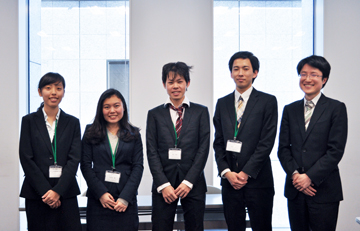
Assistant Professor Hiromichi Matsuda who teaches law at ICU recently led a group of undergraduate students to participate in the 12th Space Law Moot Court* Competition at the Digital Hollywood University in Tokyo. (*Mooting is a simulated court proceeding where student teams give an oral presentation of a legal issue or problem against an opposing counsel and before a judge.) The Japan ICU Foundation awarded Professor Matsuda a grant of ¥681,000 to help fund his students’ participation not only in this competition, but in the Japan Cup in Tokyo and the Nelson Mandela World Human Rights Moot Court Competition in Geneva in July 2017 as well.
he four ICU students who participated in the March 12th competition were Chizuru Yamazaki (junior), Subaru Arakane (sophomore), Toshiki Narushima (sophomore) and Momo Nakakita (freshman).
A total of 29 students from six teams (ICU, Koyo University, Space Development Forum, Toyo University、University of Tokyo and Waseda University) gathered to compete. The agenda was “Case Concerning Lunar Facilities and Withdrawal from the Outer Space Treaty.”
Although Waseda University won the overall prize as well as the best speaker prize, Ms. Yamazaki won the third best speaker prize.
Professor Matsuda shared the following comment:
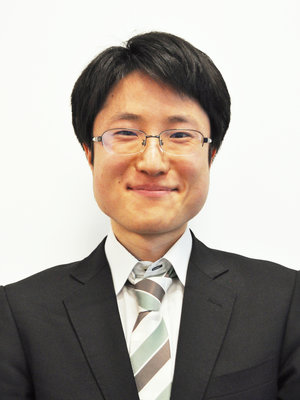 “ The award in space law competition follows the prizes in international law moot court competition for Japan Cup in July 2016. These fantastic achievements in moot court activity demonstrate a genuine worth of ICU’s liberal arts education. Since ICU students thoroughly train their critical thinking skills from the first year, students acquire high ability to tackle extremely complicated problems and construct persuasive arguments with extensive academic research. These are core competencies for peaceful resolution of conflicts through dialogue. In the Space Law Moot Court Competition, ICU team was unique in their interdisciplinary spirit: students did an extensive research not only in the field of law but also in the area of space physics. I expect that ICU students will significantly contribute to peaceful resolution of international disputes that are arising in the real world.”
“ The award in space law competition follows the prizes in international law moot court competition for Japan Cup in July 2016. These fantastic achievements in moot court activity demonstrate a genuine worth of ICU’s liberal arts education. Since ICU students thoroughly train their critical thinking skills from the first year, students acquire high ability to tackle extremely complicated problems and construct persuasive arguments with extensive academic research. These are core competencies for peaceful resolution of conflicts through dialogue. In the Space Law Moot Court Competition, ICU team was unique in their interdisciplinary spirit: students did an extensive research not only in the field of law but also in the area of space physics. I expect that ICU students will significantly contribute to peaceful resolution of international disputes that are arising in the real world.”
The four ICU students who participated in the competition also shared their experiences with us.
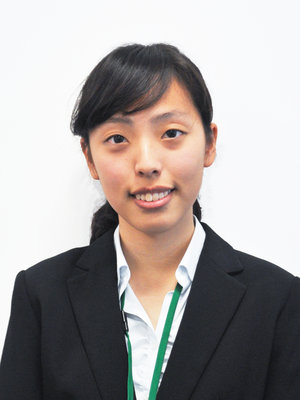 Chizuru Yamazaki
Chizuru Yamazaki
This was my second time to participate in a moot court competition (the first competition was on international maritime law). The number of participants grew from two to four this time and we had a lot of fun. The topic was international space law, which is a relatively new field, and the discussion centered on “ex aequo et bono” (equity and good conscience) which has not yet been clearly interpreted by the International Court of Justice. This made the discussion complex and challenging, even with the larger team. However, faced with such challenges, we took advantage of ICU’s liberal arts education and consulted professors in other fields, studied a considerable number of resources in the ICU library, and vigorously debated with each other. This experience stimulated my intellectual curiosity as well as my interest in space and law. Future goals for the ICU team might be to increase the number of students who participate in mooting, streamline research and preparation, and improve the quality of briefs and oral presentation. Personally, I would like to expand my knowledge of various systems of law including international law and continue research on space law in a way that is only possible at ICU.
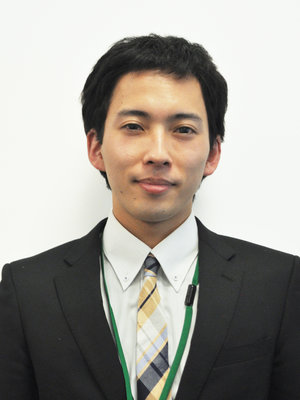 Subaru Arakane
Subaru Arakane
I am very satisfied that I was able to participate in this competition. Studying many materials and legal precedents and delving into aspects of law that I hadn’t been familiar with was a very meaningful experience. At the competition, we found out that the author of one of the materials we studied was a judge, and I was very nervous. However, I’m happy to have received kind compliments from Professor Matsuda and my teammates. I would like to participate again if I have the chance and would also like many more people to know how fascinating mooting is.
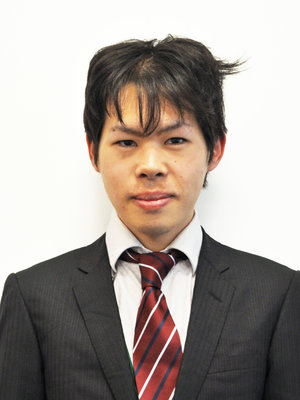 Toshiki Narushima
Toshiki Narushima
One thing we could have done better was to start preparations earlier. We attended class, reviewed relevant provisions and read compromise agreements, but each team member had a different idea of how to prepare for the competition. Despite having confirmed our strategy week after week, at the actual competition, we ended up repeating the same arguments and had difficulty moving forward. When the time came to write memorials, what we needed to know and investigate became clear and each of us dived into research, our skills grew stronger, and this deepened mutual understanding. The only problem was that we began writing the memorials too late, and the first part of our argument was weak. We also suffered because the research process coincided with the exam period at ICU and we ran out of time to bulk up on vital legal knowledge.
There are two things that I’m satisfied with. One is that I experienced applying law in an actual case. I was able to learn how to use legal precedents to interpret a legal term, and how to do research efficiently. The other is that I realized that my Japanese ability was inadequate. I have been debating in English and I attributed my lack of communication skills to the fact that English was my second language. However, through this experience I realized that I am not eloquent in Japanese and that I had to work on my honorifics. I studied oral presentations in past competitions on YouTube and tried to emulate expressions. I would not have been able to achieve either of these things had I not participated in moot court. I’m glad I mustered the courage to try it!
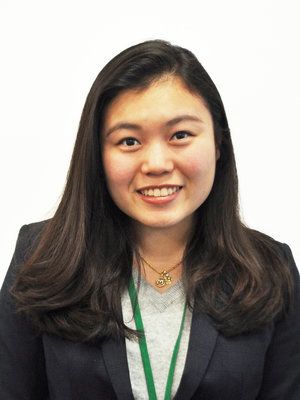 Momo Nakakita
Momo Nakakita
I participated in this competition as an auditor of Professor Matsuda’s class (Comparative Constitutional Law).* This has been an invaluable experience which enhanced my ability to do research, engage in teamwork, think logically and speak publicly. Through my activities in the ICU Debating Society, I had been used to improvising, but the moot court competition required solid evidence and careful research, which took getting used to. Professor Matsuda and my teammates helped me through the process. On the day of the competition, I was glad that the oral presentation went smoothly, and I was able to answer the questions posed by the judges. I also realized how difficult conflict resolution is in cases such as land disputes which we studied at ICU, as both the applicant and respondent could have valid arguments. As space development continues in the future, legal issues between countries will only increase. I became interested in the balance between technological advancement and the development of laws. To understand this issue, I will need to acquire more legal knowledge, and I am determined to work hard. I would like to thank the Japan ICU Foundation for providing such a rewarding experience.
*Ms. Nakakita was a freshman and could not attend all hours of this class due to a conflict with her ELA (English for Liberal Arts) classes.
Thank you for sharing your thoughts about the experience, and congratulations on your success!
Photos by Hana Kamio



